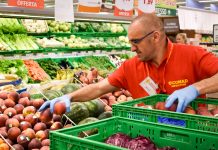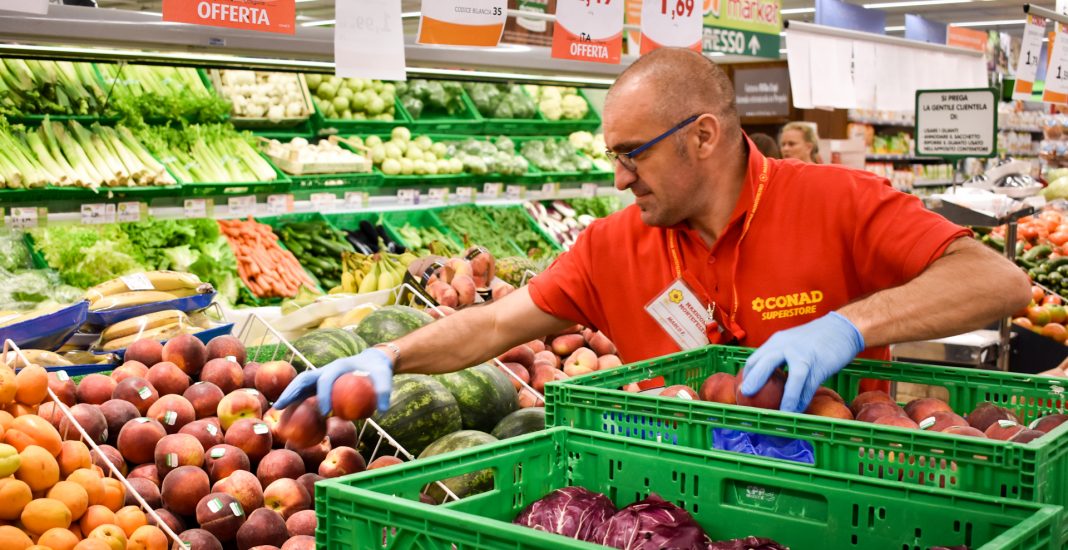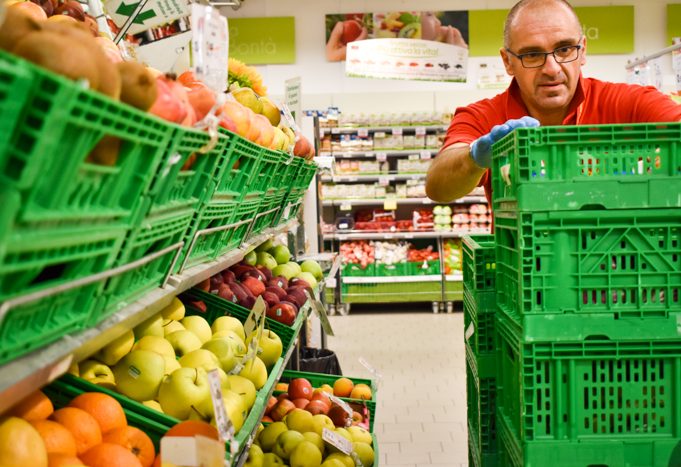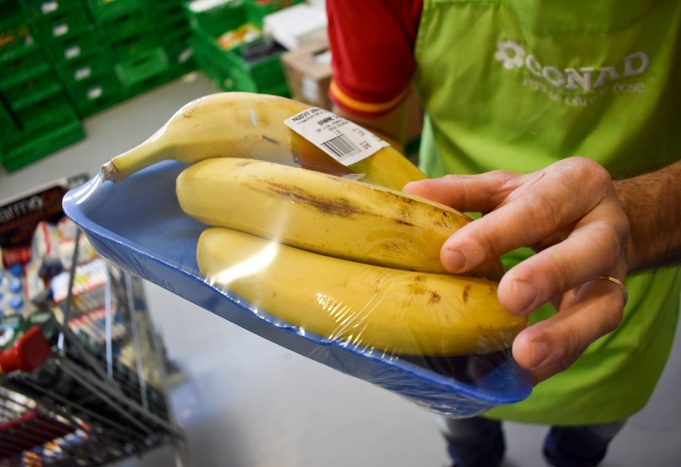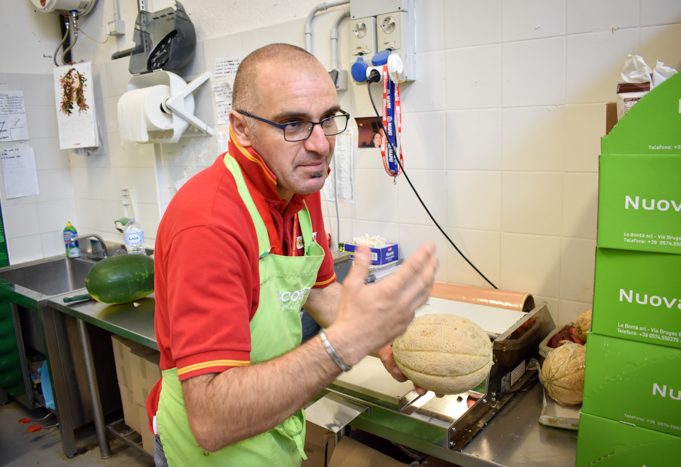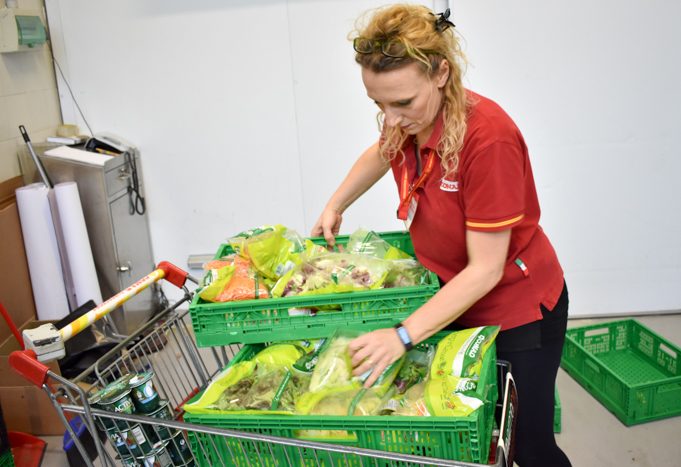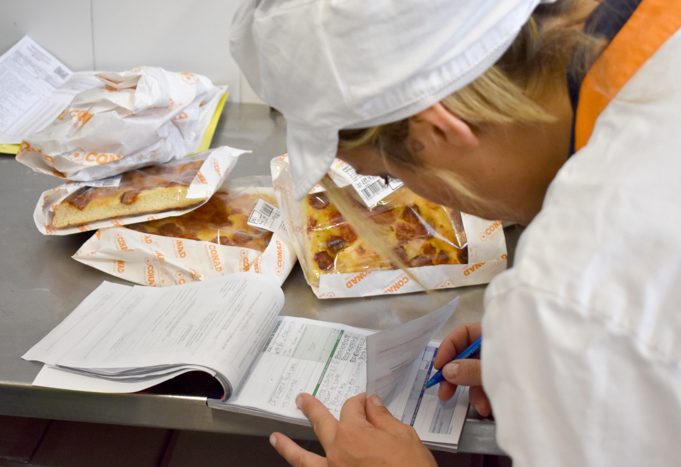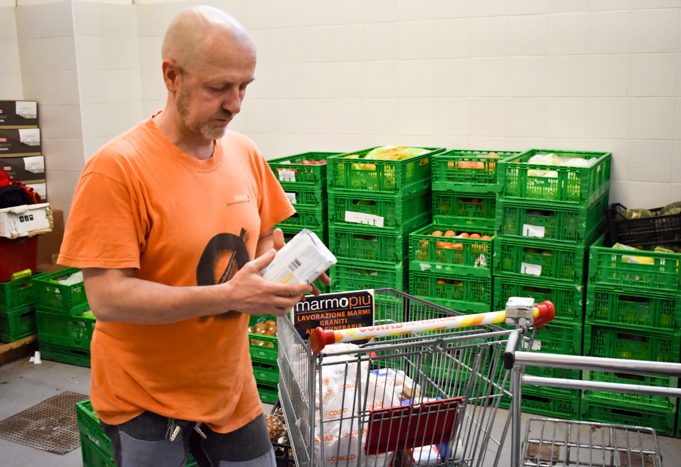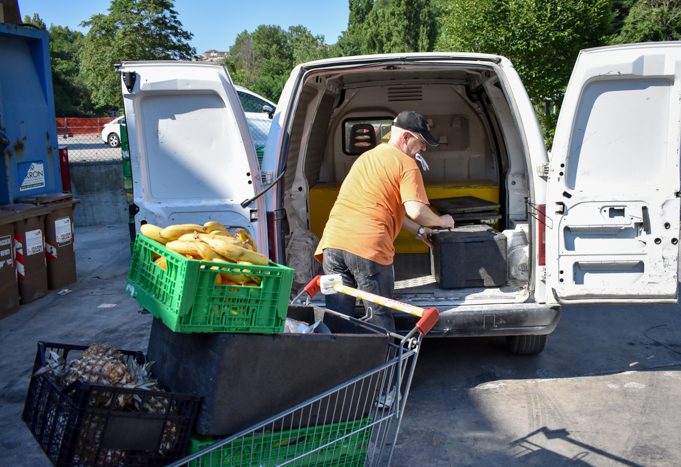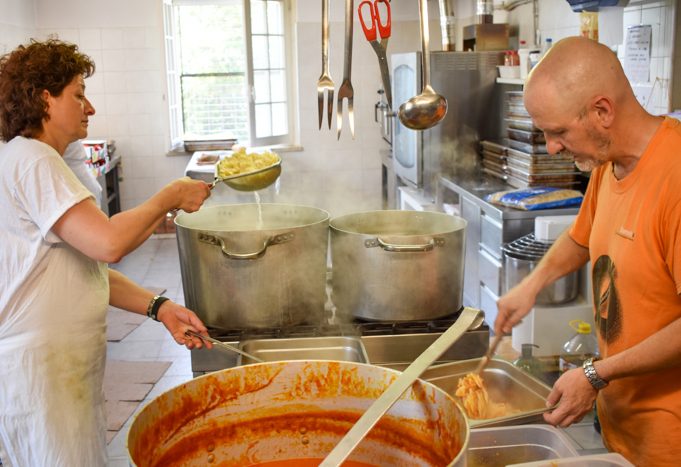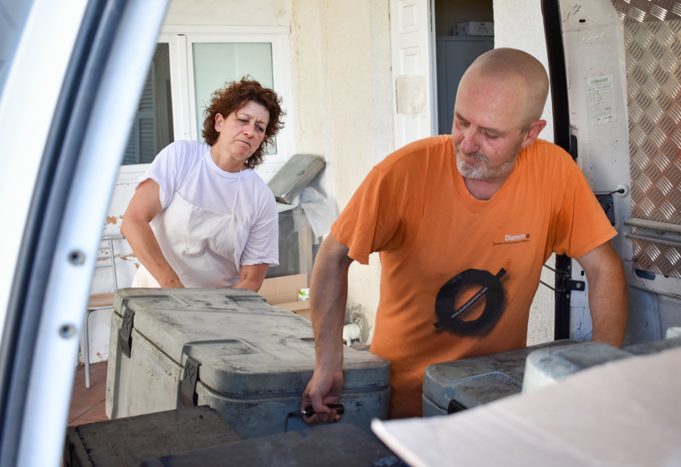New law boosts tradition of sending unsold food to charity, not garbage
URBINO, ITALY – In a corner of the storeroom at the Maxiconad, a large modern supermarket outside the walls of this famous Renaissance city in central Italy, workers sort through crates of packaged salads, pizza, yogurt, fruits and vegetables nearing their “best-by” dates. They will all be donated to a charity, a practice the store’s owner, Luca Galuzzi, credits to his parents – and the Italian government.
When he was young his parents taught him about his Italian ancestors’ struggle with poverty and hunger.
“Looking back, we saw many people have suffered from hunger,” Galuzzi said. “So my colleagues and I are very happy to give this food to these associations who take care of single moms and children.”
But the Italian government also makes charity pay: Galuzzi’s store earns about $13,000 a year in tax rebates paid on the value of the donations.
This scene is becoming more common across Italy. In 2016, the country followed France as the second EU nation to enact a law offering an economic incentive for grocers who donate unsold food to charities. The regulations go along with the United Nations’ goal to end hunger and malnutrition by 2030.
This process of rescuing food from being wasted at sources such as farms, restaurants and supermarkets to feed the needy is referred to as “gleaning.” According to UNICEF, about 13.3% of Italian children do not have access to basic necessities such as adequate nourishment.

That number is 23.1% in the United States. Although the U.S. does not have such compelling regulations to encourage gleaning as Italy and France, there are some laws making it easier for grocers to avoid throwing out unsold items. The Bill Emerson Good Samaritan Food Donation Act protects businesses and individuals from liability when donating food, and there are some tax deductions offered to companies that donate food.
But gleaning has been a fairly standard practice in Italy for many years, thanks in large measure to the government payback.
Conad is one of the largest grocery chains in Italy, and Galuzzi’s family owns five stores between the hill town of Urbino and the seaside city of Pesaro about 30 miles away. They have been donating the unsold food from each of these stores for about three years. He said he would much rather donate unsold food to those in need than waste it, but the tax incentives are what really makes it possible.
“When (financial) conditions get worse, you need to check where you can save something,” he said. “We looked for information and we noticed we could donate products close to their expiration date and we could recover taxes.”
We looked for information and we noticed we could donate products close to their expiration date and we could recover taxes.
While the regulations help supermarkets financially, they are ultimately designed to lower the amount of hungry people in the country by benefiting charities.
The unsold food from local Conads goes to La Villetta, meaning “little house.” La Villetta is an Urbino nonprofit that provides housing, food, and other necessities for refugees, single mothers in need and children whose parents have lost custody. The program serves more than 100 children.
Pietro Pretelli, the delivery man for La Villetta, picks up the donated food from the three Conads in Urbino each morning and delivers it to the kitchen to be prepared into meals. Those are delivered to the La Villetta residences. Pretelli said any unused donations are sent to organizations affiliated with the Red Cross or other food banks.

Lucia Gostoli, in charge of the kitchen at La Villetta, makes sure that enough food is prepared each day for children and adults under La Villetta’s care. She estimates that about 20 percent of the food served is from Conad.
“Sometimes we get many usable things. If there is a lot of fruit we can make a fruit salad with it,” Gostoli said. “Other times we get products that we aren’t able to use fully.”
Gostoli and her staff prepare breakfast, lunch, dinner, snacks and desserts for the children each day. She said that the food donated from Conad adds more substance and variety to the meals.
Donations include mostly items like packaged salads, prepared dishes, cheese, baked goods, fruit, packaged bread and pizzas. Food is usually picked up one or two days before its expiration date, although items that have passed their “sell by” date can also be accepted in many cases with the new regulations. Any packaged food that is torn in shipment to a Conad, such as bags of pasta, can also be donated.
Marco Fraternale oversees the fruit and vegetable department at Maxiconad and chooses which fruits are ready to be donated each day. He explained that even though fruit may look bruised or ugly, it is still often useful. For example, he said that when a fruit has bad spots, they are often cut off and the rest is used in fruit salads or desserts.
High cosmetic standards are a major cause for food waste across the world, and much of the food produced for supermarkets is wasted before it even arrives at the store because of this concern with appearance, according to the UN Food and Agriculture Organization (FAO). The FAO estimates that roughly one third of the food produced for human consumption is wasted every year.
Galuzzi said it doesn’t make sense that many supermarkets in the United States don’t donate their food.
“If the food is going to be thrown into the trash, I am more than happy to give it to people in need or even our own workers,” Galuzzi said. “Good food must not be thrown away.”






















